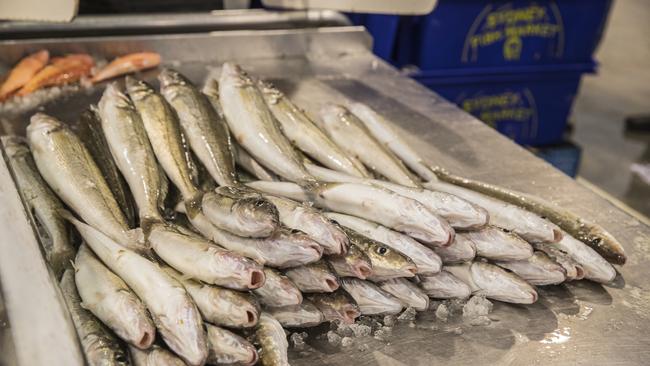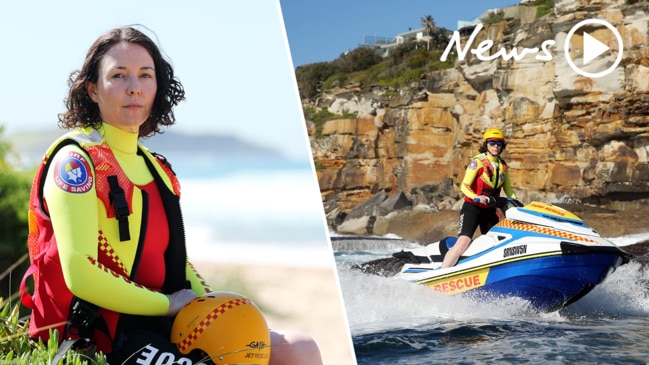Commercial fishing reform raises red flags over catch quota system
The State Government has consulted on reform of the state’s marine scalefish sector, but fishers fear flagged changes could signal the end of the road for smaller businesses.

SA Business
Don't miss out on the headlines from SA Business. Followed categories will be added to My News.
- Snapper ban leads to economic concerns
- Prizes, discounts, freebies: Check out the latest subscriber rewards
Almost a third of the state’s commercial marine scalefish licence holders have signed a petition against proposed changes they say would benefit the big end of town and drive smaller operators out of business.
The fishers are concerned that an individual transferable catch quota (ITQ) system could be brought into South Australia.
An ITQ system for species such as King George Whiting and Southern Garfish has been flagged as an option in a consultation paper put out by the State Government.
Under this system, fishers would be allocated quota shares, which could then be traded.
But fishers say this system would only benefit the higher end of the industry and investors, with the funds to buy up quotas.
West Coast Professional Fishers Association president Jeff Schmucker said his organisation was totally opposed to an ITQ system.
“Every example I’ve seen of ITQs — it gets taken over by corporations and large entities,” he said.
“We’re concerned quotas will be snapped up by people with old money or taxation problems. Grassroots fishermen can’t afford to compete.”
Mr Schmucker said it would be a shame to see smaller commercial fishers leave the industry, particularly with the social benefits they provide to regional communities.
“We produce a good quality product for consumers across the state and country and take pride in what we do,” he said.
“We also have children in the local schools and use local service providers.”
Graham Harrowfield, who is based in Whyalla but works in the fishing industry out of Lucky Bay, has been circulating a petition among marine scalefish licence holders, stating the sector does not want an ITQ system in place.
The petition has been signed by more than 90 commercial fishers.
“Wherever you have ITQs, the community loses out massively,” he said.
“ITQs will only produce a super fleet of about 50 fishermen with quotas owned by investors.”
Mr Harrowfield was also concerned about the modelling used to determine total allowable catches.
“The real way to manage it is to go back and do a proper stock assessment,” he said.

Southern Yorke Peninsula Fishers Association president Shane Bishop, Yorketown, was disappointed figures on total allowable catches were not included in the consultation paper and the costs associated with the proposed ITQs.
“People are concerned ITQs will rule out smaller businesses and lead to the corporation of fisheries,” he said.
“We’ve seen it in agriculture — bigger farms are getting bigger and smaller farms are selling out. That’s leading to effects in country towns, like less kids in local schools.
“It’s concerning fishing could go the same way.”
Mr Bishop said the changes could effect consumers and put local seafood out of reach out South Australians.
“Look at Southern Rock Lobster (which operates under ITQs), it’s priced out of the local market,’ he said.
“Consumers need to know these management changes are likely to affect them as well.”
Coffin Bay fisher Darren Richardson, who has been in the industry for more than three decades and is also the West Coast Professional Fishers Association secretary, said there needed to be better data on the recreational fishing take before any reform was undertaken, particularly with the West Coast attracting a large number of “grey nomads”, known locally as the “tinny brigade”,
“They might not be experienced fishers but going on sheer numbers, they need to be considered,” he said.
Mr Richardson is also concerned about ITQs, saying they would see “smaller guys get out and bigger guys buy up”.

The consultation paper was put out by the State Government in August.
It says that reform is needed as a legacy of the sector’s open access policy prior to the late 1970s — when commercial fishing licences were issued to anyone wanting to participate. This led to stock depletion and over-capitalisation in the sector.
MORE NEWS
GM crop passage moves one step forward
The latest news in rural South Australia
Primary Industries Minister Tim Whetstone said the State Government had undertaken significant consultation with industry to ensure an industry-driven reform approach.
“The Commercial Marine Scalefish Fishery Advisory Committee will consider all the feedback before advising the State Government on the industry’s preferred reform design,” he said.
“The underlying issue prompting the need for the reform of the fishery is that there are too many commercial fishers and not enough fish to sustain a vibrant and profitable industry. “This is a legacy from the open access policy prior to the late 1970s when commercial fishing licences were issued to anyone who wanted to participate in the fishery, and compounded by Labor’s marine parks policy which concentrated fishing effort on a smaller area of water.”
Mr Whetstone said under the commercial fishery’s current management approaches, there was no annual cap to the amount of fish either the sector or an individual fisher could take.
“This makes it difficult to manage the long term sustainability of the fishery,” he said.
“Without a cap on annual take, fisheries managers seek to regulate the way fishers go about their job. As each new technology improves the efficiency of fishing, fisheries managers have responded reactively by regulating further, creating a morass of regulations and restrictions micro-managing how our commercial fishers behave on the water. With each new intervention the profitability of the sector is eroded without any guarantee of improved sustainability of fish stocks.
“A key element of the proposed reform set out in the industry consultation paper is to restrict the commercial sector to a total allowable commercial catch (TACC). This enables fisheries managers to annually increase or decrease the total commercial ‘take’ of species in a fishery depending on the level of fish stocks, improving the sustainability of the fishery.
“It is the setting of a TACC that will provide for the future sustainability of the fishery. Measures such as transferable quotas is merely one mechanism of allocating access amongst the commercial fishers to the amount of fish able to be caught under a TACC.”
Another key part of the proposed reform is taking the number of licences from 307 to 200.
Following on from the consultation, the Commercial Marine Scalefish Fishery Reform Advisory Committee will finalise a formal proposal by October 31, for consideration by the State Government.
